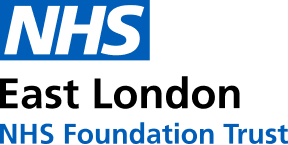Consent to use data
If the study is defined as research, informed consent must be sought from participants and recorded in the service user's medical record.
For all other types of studies, whether or not prior consent is required depends on the confidentiality of the data – the study design or type, i.e., as a service evaluation or case report, is irrelevant.
Consent is used to prevent what would otherwise be a breach of confidentiality; therefore, prior written consent must be obtained (and recorded in the service user’s medical record):
- by investigators outside the care team, even for the use of routine clinical data
- where any form of visual / audio recording is made
- to publish, e.g., in a journal or thesis, data which could be considered identifiable; to be exempt from confidentiality requirements, the data being published must be sufficiently anonymous.
See more information about using data about people in a study from the Medical Research Council (MRC).
Please also refer to ELFTs privacy policies which can be found on the Privacy and Your Data webpage.
To be exempt from confidentiality requirements, data must be sufficiently anonymous, but what does that mean? Let’s explore this with a couple of examples:
Sometimes the data has been through a process to remove personal identifiers – it is “de-personalised” or "pseudo-anonymised" – but it might still be possible to reverse that process and re-identify someone, so consent to use it is still important. It is just like a blurred photo of someone. We can’t immediately see who the person is, but we know it is a specific person. It may also be possible to work out who someone is by joining together information from different sources - like joining together different pieces of a jigsaw puzzle.
Therefore, even a service evaluation conducted by the care team from routine data might require consent if there is reason to believe that (e.g. for small sample sizes, very specific service, etc.) it might be possible to re-identify someone.
Likewise, a case study / report of an individual is – by its very nature – identifiable, regardless of the use of pseudonyms and/or masking of other personal details. So consent should always be obtained from service users who are the subject of an individual case study / report
However, it is possible to write a case study / report about a group in general terms without reference to individual members; this might include areas such as an overview of the demographics and clinical presentations of service users, and the interventions and processes used in the therapy. In such an example, individual consent from participants need not be sought, although members of the group should be made aware that the group may be discussed and written about, and this discussion should be recorded in the standard group notes.
If, however, the group case study / report includes a focus on an individual within the group, for example to explore clinical material in more depth, prior written consent must be obtained and recorded in the service user's medical record.
Remember that Confidentiality applies to both the living and the deceased.
It is, therefore, important to consider, on a case-by-case basis, your potential need to obtain consent. No class of study (e.g., service evaluations) and no type of investigator (e.g., students or trainees) are automatically exempt from the duty of confidentiality.
In all situations, investigators should be very clear in documenting the justification for omitting consent in the relevant Service Evaluation / Development Proposal or the Case Study Governance template. The templates can be found on the webpage here.
A study might include collecting non-routine data without in itself otherwise triggering confidentiality and the need to obtain informed consent. Nevertheless, the investigators should provide participants with clear information regarding:
- the non-routine data, why it is being sought and by whom, and the uses which will be made of it;
- that participation is voluntary and withdrawing from the study at any time is allowed without any impact on care
The individual's cooperation in providing the non-routine data implies sufficient consent in this context.
A core principle of the Mental Capacity Act is to empower people to make decisions for themselves wherever possible. Someone lacking the capacity to consent to treatment may nonetheless be capable of consenting to being part of a study.
When seeking to enrol an individual in a study, investigators should establish whether an issue around capacity has been flagged. If so, the responsible clinician should assess whether the individual has capacity in this context. The individual's advocate is the appropriate person to provide consent on behalf of an individual deemed to lack capacity.
The best source of guidance for all studies - whether research or service evaluation - has been jointly drafted by the NHS Health Research Authority (HRA) and Medical Research Council (MRC). In the HRA/MRC guidance on preparing PIS and consent forms you will find information on:
- The principles of consent (both ethical and legal)
- How the principles relate to preparation and use of a Participant Information Sheet (PIS) and consent form
- Recommended content of a PIS and consent form
- Design and style of an effective PIS and consent form
The guidance covers consent in adults, children, young people and adults not able to consent for themselves (in both emergency and non-emergency situations).
You will find examples and suggested text, however, the guidance should be considered as a framework, not a rigid template: we would encourage you to think carefully about how best to inform potential participants. One size does not fit all: you do not need to produce the same PIS and consent form to support consent for a questionnaire study as you would to recruit into a drug trial. The best way to make sure your consent documentation is fit for purpose is to test it with patient groups or other members of the public.
